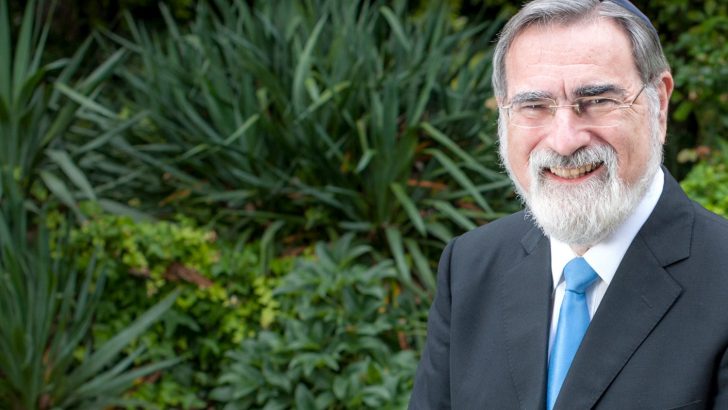The View
As I sit to write, I am conscious that Brexit in all its manifestations is causing increasing concern across Ireland – north and south. It was all due to come to some sort of fruition on Friday March 29, but now it seems that fruition may occur on April 12, May 22 or some other indeterminate date. Or it may not occur at all.
So how did we get to this place?
In the Brexit referendum, 46,501,241 people were entitled to vote. On the day, 72.2% of them did so. Of those, 51.9% voted to leave, some 17,410,742 people. On the other hand, 48.1% voted to remain, some 16,141,241 people. By any standard it was a big turnout and a clear majority voted to leave.
That was over 1,000 days ago. Since then a lot of people have been trying to work out what it will all mean for the future. The problem is that nobody quite seems to have known what was expected. More importantly, the scope and extent of what is involved clearly was not understood by everyone.
Contribution
The way it has evolved is that a two-stage process for the UK to leave was insisted upon by the European Union – the first stage, the Withdrawal Agreement, and the second stage, the Trade Agreement. So far, all we have managed to negotiate is the Withdrawal Agreement (which is a very lengthy and complex document,) and a ‘divorce payment’ of £39billion (€45.5billion). Britain is currently a net subsidiser of the EU – it contributes about £13billion (€15.2billion) annually and gets back about £4billion (€4.66billion) in payments to farmers, deprived areas etc.
Ireland contributed £1.77billion (€2.06) in 2017 and received back £1.82billion (€2.12billion). Ireland is a net beneficiary, the UK a net contributor – of about £9billion a year.
So far the British government has spent about £4 billion on its Brexit processes and parliament has rejected the Withdrawal Agreement twice.
I wonder how many MPs and Peers have read the Withdrawal Agreement, and what they actually object to in it? It provides a structure for residence rights, rights of equality of treatment, transitional arrangements for patents, trademarks, ongoing judicial co-operation in criminal matters, ongoing law enforcement co-operation proceedings, police co-operation and exchange of information, security and so many other things. It says that it exists to “ensure an orderly withdrawal…to prevent disruption and to provide legal certainty to citizens and economic operators as well as to judicial and administrative authorities in the [European] Union and in the UK whilst not excluding the possibility of relevant separation provisions being superseded by agreements on the future relationship”.
It has 599 pages – it is a big document, and it is complex, but so are the myriad issues with which it deals.
It really is necessary. So is some form of protocol, but not one which ties the UK into Europe indefinitely. We do need to ensure that there is no physical border between the north and south of Ireland. We must protect our hard-won peace.
If the deal passes by April 12, the UK will leave on May 22. If the deal does not pass by April 12 under the latest agreement Britain could leave without a deal, revoke Article 50 or create a new plan to take to Brussels.
I do not believe there can be a new plan by April 12. It is all just too complex. Such is the chaos in British politics, I do not believe that there is currently a sufficient consensus to abandon the referendum result and vote for the UK to remain in the EU. That leaves the very bleak prospect of ‘no deal.’
No deal would produce chaos – we are intricately involved in a thousand different ways in the EU. Our arrangements for the movement of buses, trucks and people across borders (without rapid legislative intervention there would be no right for ordinary buses to cross borders from the UK to the EU [Ireland]). Our regulatory processes, our protections of goods, medical products, patents, trademarks, extradition arrangements, co-operation in criminal investigations across borders and so many other arrangements, will all cease having effect.
What will happen at the border on April 12 if all the current arrangements legalising and enabling and protecting goods moving across borders from the UK to Ireland cease to apply?
One thing we can be fairly sure of is that there can be no reason to believe that the EU would not insist that Ireland create some form of border arrangements, just as it has border arrangements with other non-EU countries. It has interests to protect.
So we are in a perilous position. It is in the interests of the 27 remaining EU states and Britain to resolve the way in which it withdraws. Nobody has produced an alternative Withdrawal Agreement. Despite all the criticism of Theresa May, nobody else has even offered a structure which approaches the complexity and reach of the deal currently on offer. There is no clarity as to what those who reject this deal want.
It is a very difficult situation – the greatest constitutional crisis in the UK in my lifetime. I remember why the EU was created: the destruction and devastation of World War II, the hunger, the atrocities, the estimated 35 million people who died, the 20 million disabled. The European Communities came into existence to prevent any recurrence of those terrible days. We have not seen such days since.
Remembering that, and accepting that the people of the UK called for Brexit, that political parties committed to give effect to the will of the people, they are in a position in which they either give effect to a managed Brexit – the May Deal – or they risk a general election, something none of the parties want at the moment.
This is surely a time for prayer for cool heads, for a recognition of the need to do all we can to ensure the common good. It is about our people, north and south and about the people of the rest of the UK. It is about the peoples of Europe.
Rabbi Jonathan Sacks, speaking on the occasion of Pope Benedict XVI’s visit to England in 2010 said: “We value people not for what they earn or what they buy or how they vote but for what they are, every one of them a fragment of the Divine presence. We hold life holy…each of us is lifted by the knowledge that we are part of something greater than all of us, that created us in forgiveness and love, and asks us to create in forgiveness and love.
“Each of us in our own way is a guardian of values that are in danger of being lost, in our short-attention-span, hyperactive, information-saturated, wisdom-starved age,” he said.
As we contemplate Brexit, north and south of our common border, we must reach beyond the name-calling, abusive, chaotic present to a future predicated upon our acknowledgement of the value of all our people, and try and create a future which will give hope to the generations to come.


 Nuala O’Loan
Nuala O’Loan Rabbi Jonathan Sacks
Rabbi Jonathan Sacks 